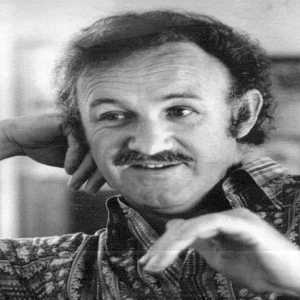Eugene Allen Hackman (born January 30, 1930) is an American retired actor and novelist. In a career that spanned more than six decades, Hackman won two Academy Awards, four Golden Globes, one Screen Actors Guild Award, two BAFTAs, and one Silver Bear.
Hackman's two Academy Awards wins include one for Best Actor for his role as Jimmy "Popeye" Doyle in William Friedkin's acclaimed thriller The French Connection (1971), and the other for Best Supporting Actor playing "Little" Bill Daggett in Clint Eastwood's Western film Unforgiven (1992). His other Oscar-nominated roles were in Bonnie and Clyde (1967), I Never Sang for My Father (1970), and Mississippi Burning (1988).
Hackman's other major film roles included The Poseidon Adventure (1972), The Conversation (1974), A Bridge Too Far (1977), Superman (1978) and its sequels Superman II (1980) and Superman IV: The Quest for Peace (1987), Hoosiers (1986), No Way Out (1987), Another Woman (1988), Bat*21 (1988), The Firm (1993), The Quick and the Dead (1995), Get Shorty (1995), Crimson Tide (1995), Enemy of the State (1998), Antz (1998), Absolute Power (1997), The Royal Tenenbaums (2001), Runaway Jury (2003), and Welcome to Mooseport (2004).
Early life and education
Eugene Allen Hackman was born in San Bernardino, California, the son of Eugene Ezra Hackman and Anna Lyda Elizabeth (née Gray). He has one brother, Richard. He has Pennsylvania Dutch, English, and Scottish ancestry; his mother was Canadian, and was born in Sarnia, Ontario. His family moved frequently, finally settling in Danville, Illinois, where they lived in the house of his English-born maternal grandmother, Beatrice. Hackman's father operated the printing press for the Commercial-News, a local paper. His parents divorced when he was 13 and his father subsequently left the family. Hackman decided that he wanted to become an actor when he was ten years old.
Hackman lived briefly in Storm Lake, Iowa, and spent his sophomore year at Storm Lake High School. He left home at age 16 and lied about his age to enlist in the United States Marine Corps. He served four and a half years as a field radio operator. He was stationed in China (Qingdao and later in Shanghai). When the Communist Revolution conquered the mainland in 1949, Hackman was assigned to Hawaii and Japan. Following his discharge in 1951, he moved to New York City and had several jobs. His mother died in 1962 as a result of a fire she accidentally started while smoking. He began a study of journalism and television production at the University of Illinois under the G.I. Bill, but left and moved back to California.
